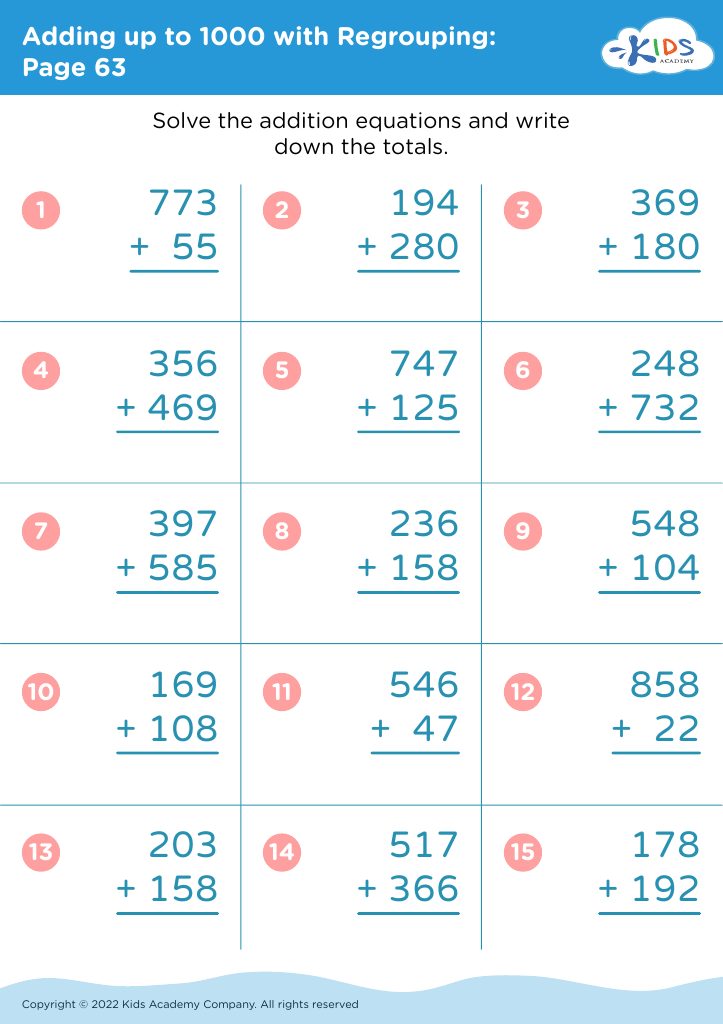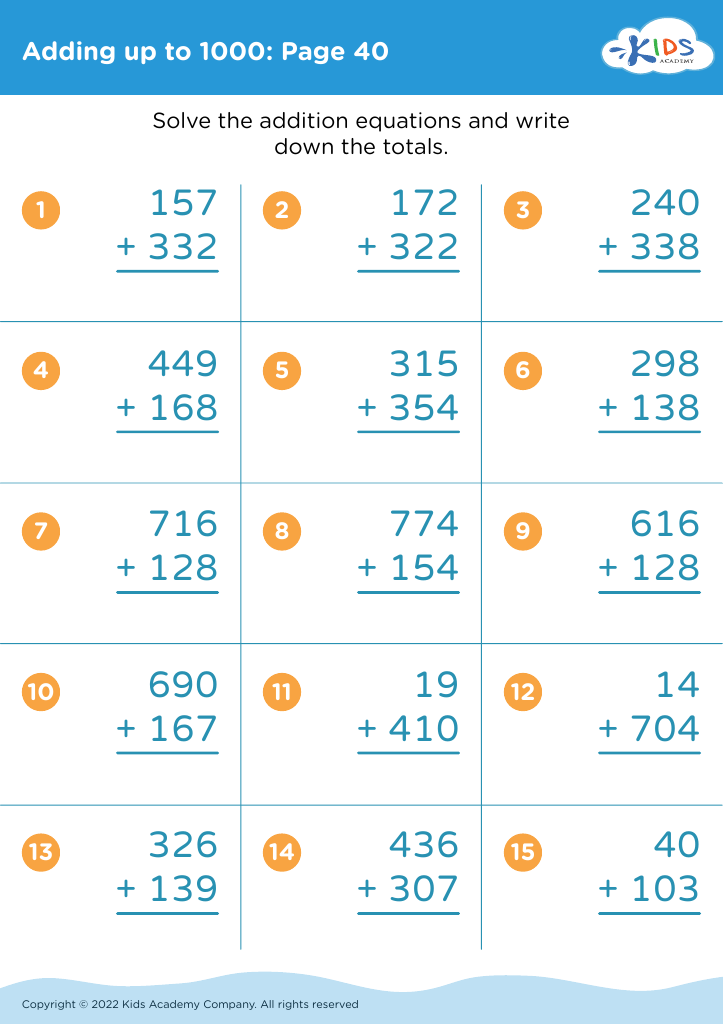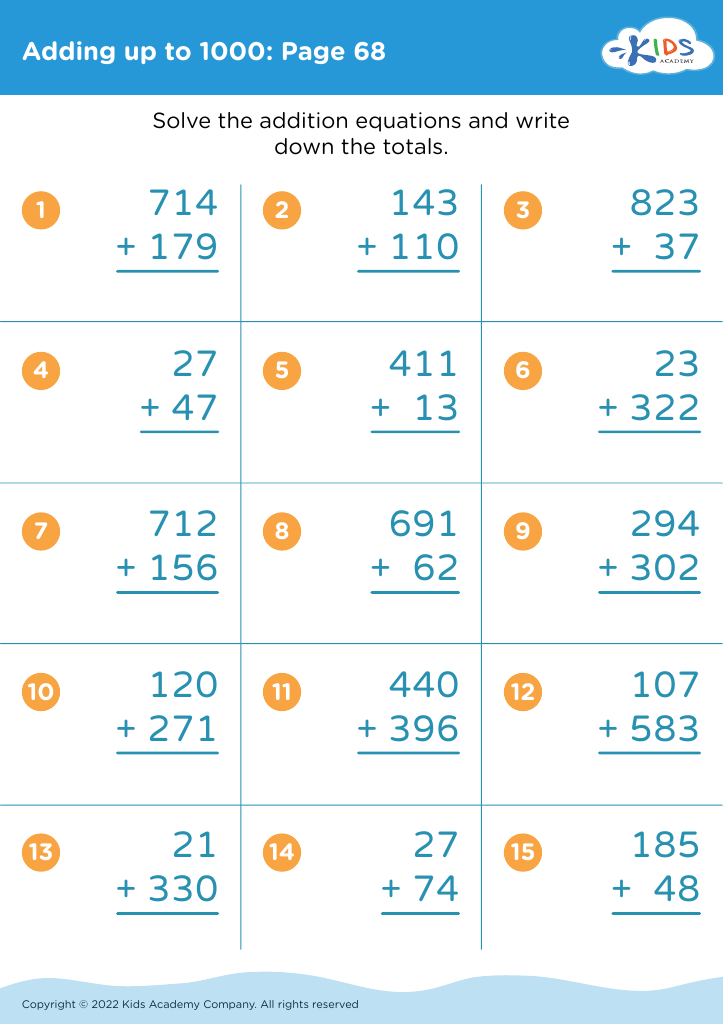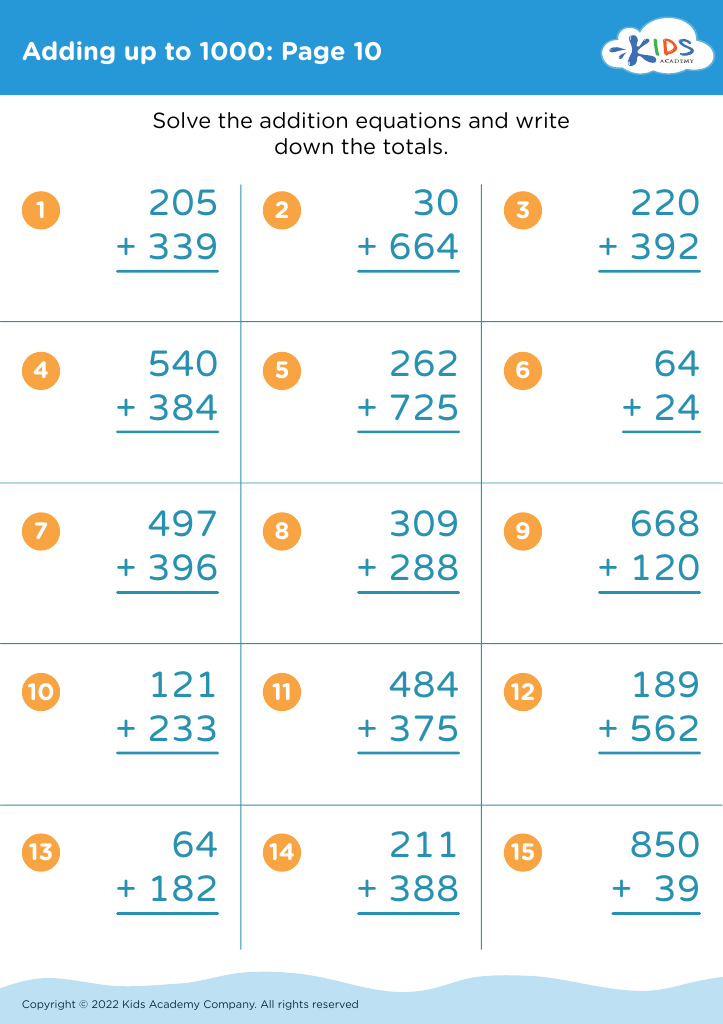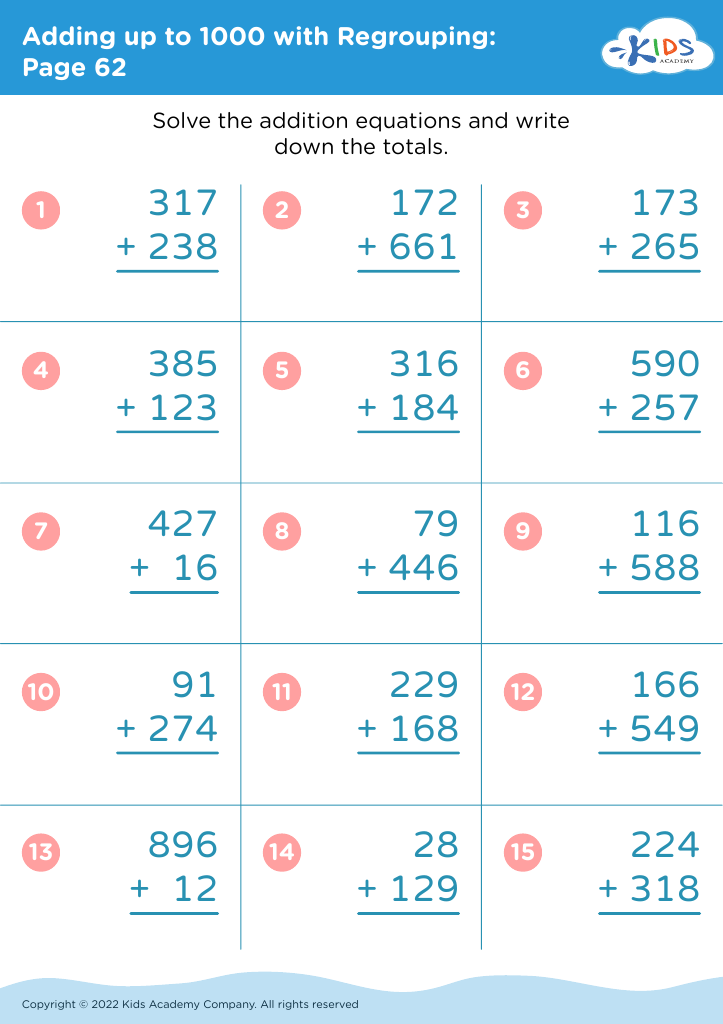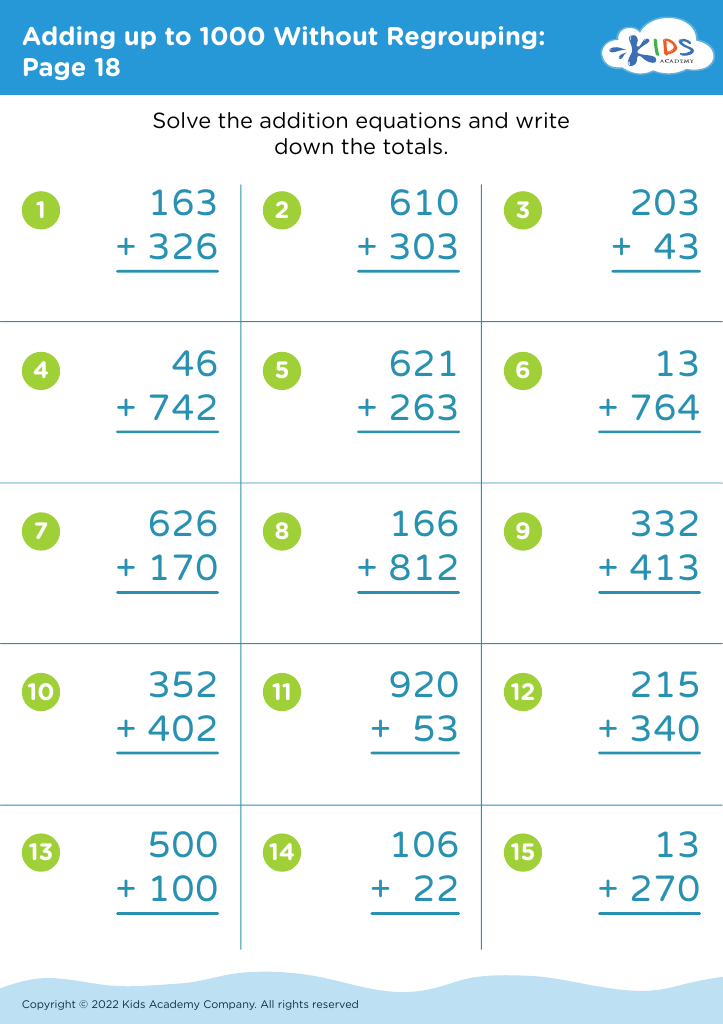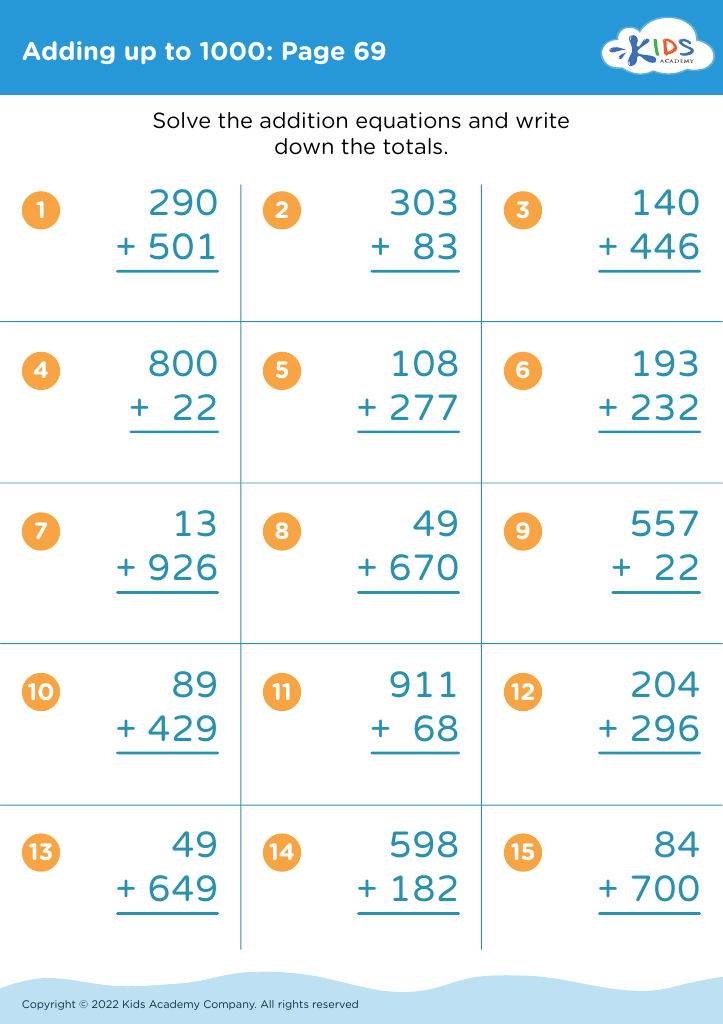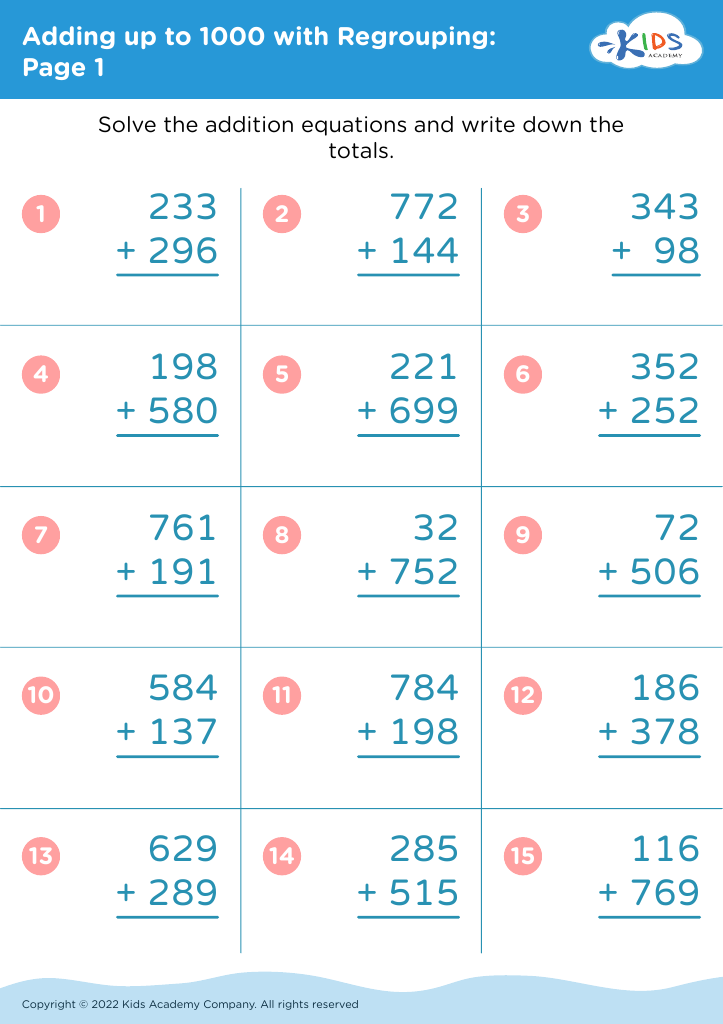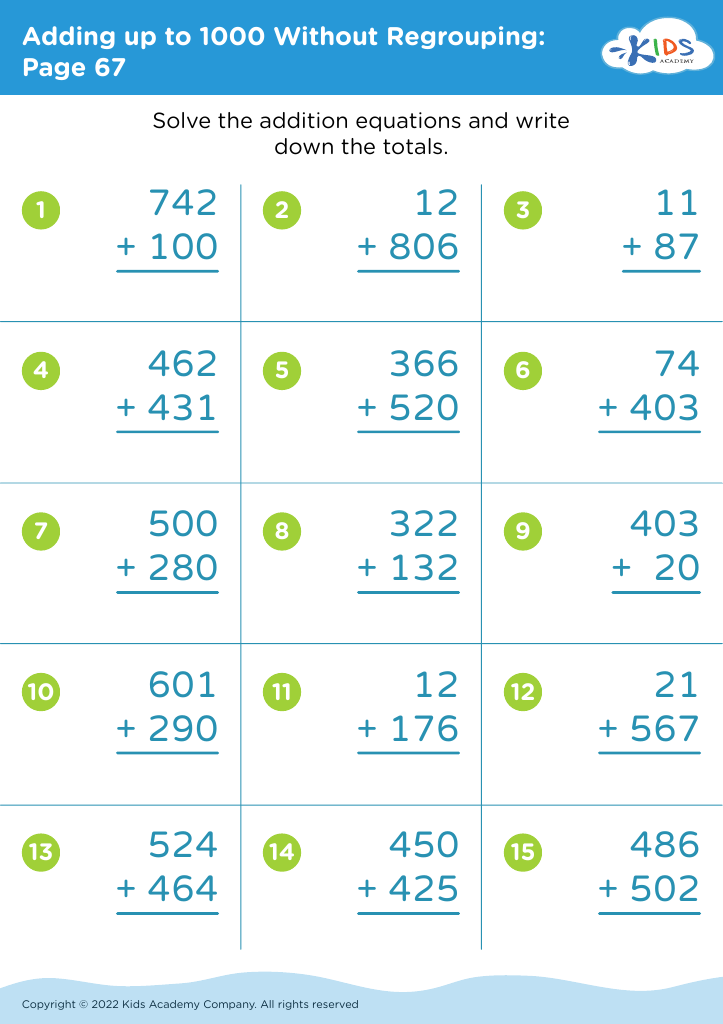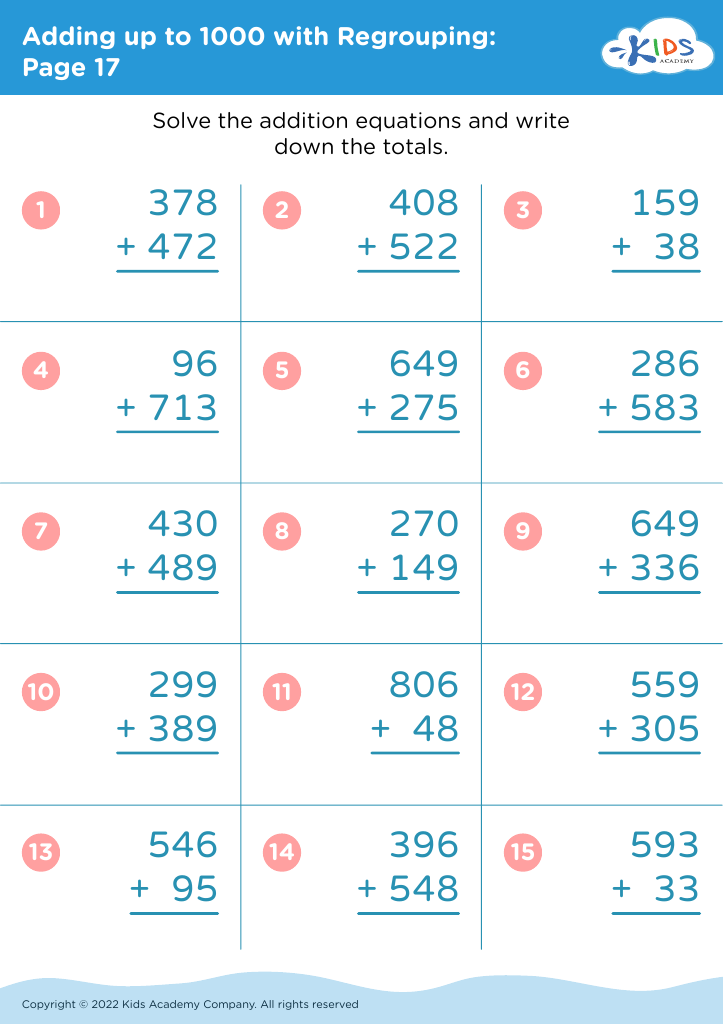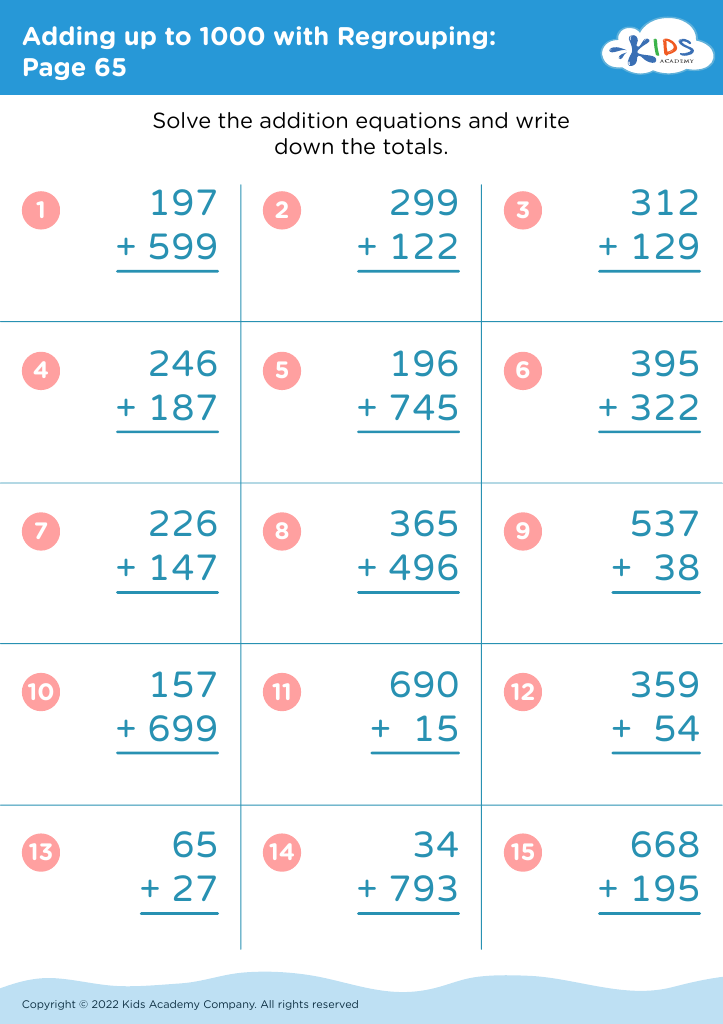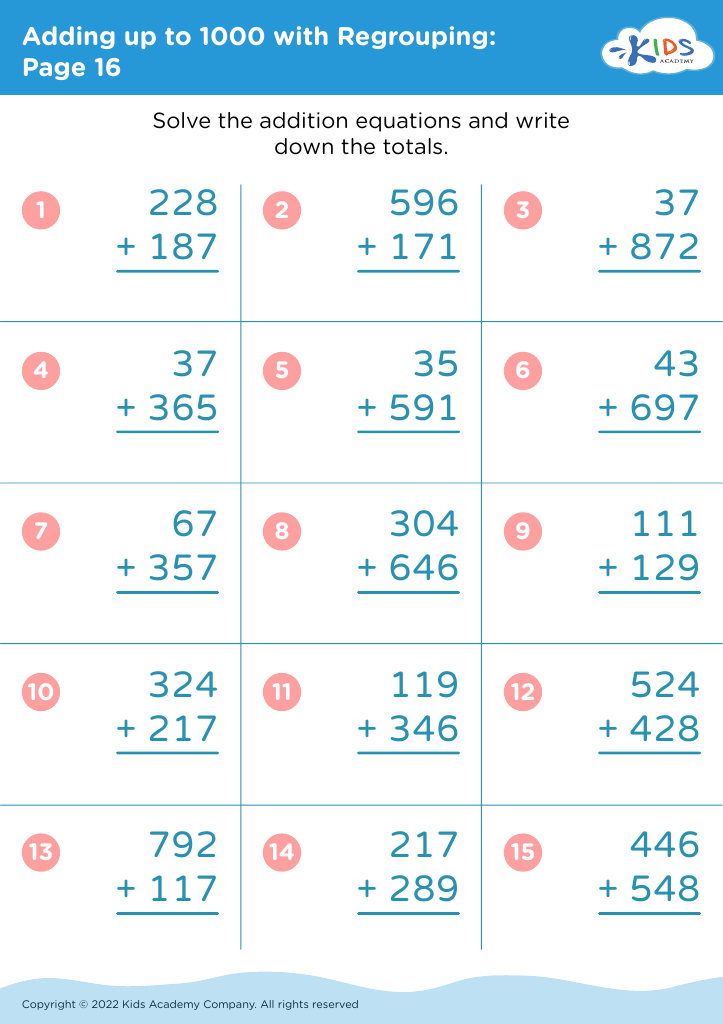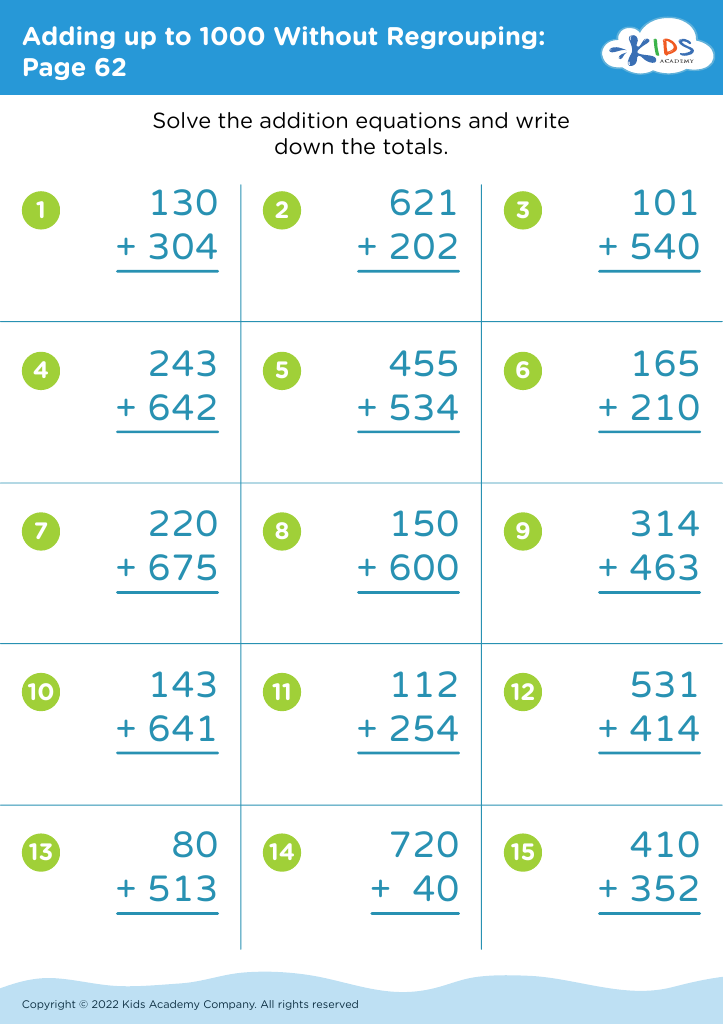Comparing Fractions Adding up to 1000 Worksheets for Ages 6-8
16 filtered results
-
From - To
Explore our "Comparing Fractions Adding up to 1000 Worksheets for Ages 6-8," designed to boost young learners’ math skills. These fun, engaging worksheets focus on developing an understanding of equivalent fractions and comparing fractions that sum up to 1000. Tailored for children aged 6-8, our activities include colorful visuals and engaging problems to foster confidence and proficiency in fraction comparison. Ideal for classroom use or homeschooling, our resources make learning accessible and enjoyable, laying a strong foundation for future math success. Encourage your child to master fractions with these comprehensive and interactive worksheets.
Comparing fractions and understanding sums up to 1000 are essential building blocks for children aged 6-8 because these skills develop both foundational mathematical understanding and critical thinking. Young children start by learning basic math concepts such as addition and subtraction, and comparing fractions helps them deepen their comprehension of how numbers and parts of wholes work. At this age, children are highly receptive, and introducing them to comparing fractions helps with their grasp of equivalence, order, and the relative sizes of fractions, which are crucial for their future mathematics education.
Parent and teacher involvement is vital because they can provide the nurturing and structured environment children need to build these skills effectively. Actively engaging with the concepts of comparing fractions ensures children develop strong number sense, preparing them for more complex mathematical operations. Understanding sums totalling up to 1000 is equally critical as it enhances a child's ability to cope with larger numbers, boosting their confidence and cognitive abilities.
Early intervention from parents and teachers establishes a solid mathematical foundation, fostering a positive attitude towards math. This, in turn, contributes to academic success and problem-solving skills in other subjects. Encouraging practice, guiding through challenges, and celebrating successes make learning these concepts enjoyable and less intimidating for the child.
